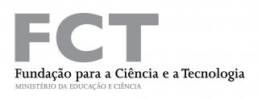Seeds
Stakeholder-Based Environmentally-Sustainable and Economically Doable Scenarios
About
Stakeholder-Based Environmentally-Sustainable and Economically Doable Scenarios for the Energy Transition
Urgent efforts to cut energy-related greenhouse gas emissions in the EU are hindered by the limitations of the methods used to inform the design of national energy transition pathways. The techno-economic worldview of cost minimization embedded in these methods means that the resulting scenarios remain disconnected from the many challenges to their implementation and concerns of real stakeholders — both citizens and policymakers.
Such concerns are often environmental (e.g. land and resource use) or social (e.g. acceptance of infrastructure for local residents). So far, no solutions exist to integrate these into the techno-economic energy system modelling methods used to design future energy scenarios. We address this issue by developing and testing a novel computational workflow to actively engage humans in scenario design while accurately modelling the relevant technical, economic, and environmental constraints.
Team
Ilja Šmorgun, Iuliia Paramonova
Tasks
With this project, we plant the seeds for a publicly desirable, environmentally friendly, and technically implementable energy transition. To do so, we
integrate into an established open-source modelling framework an automated approach to generate a wide range of energy system alternatives that go beyond an economically optimal solution
incorporate social and environmental impact factors into these alternatives
design and develop an interactive web-based user interface where experts and members of the public can participate in system design by visualising results and communicating their preferences
generate a new decision space by merging stakeholder preferences into the energy system optimisation algorithm.
While each project component will develop novel computational approaches, this project’s overall innovation will also be a method to integrate human preferences into the computational planning of future energy infrastructure.
The consortium consists of four partners, and TLU contributes expertise on user interface design and human-computer interaction.
Period
2021 - 2023
Budget
€ 500 428,52




